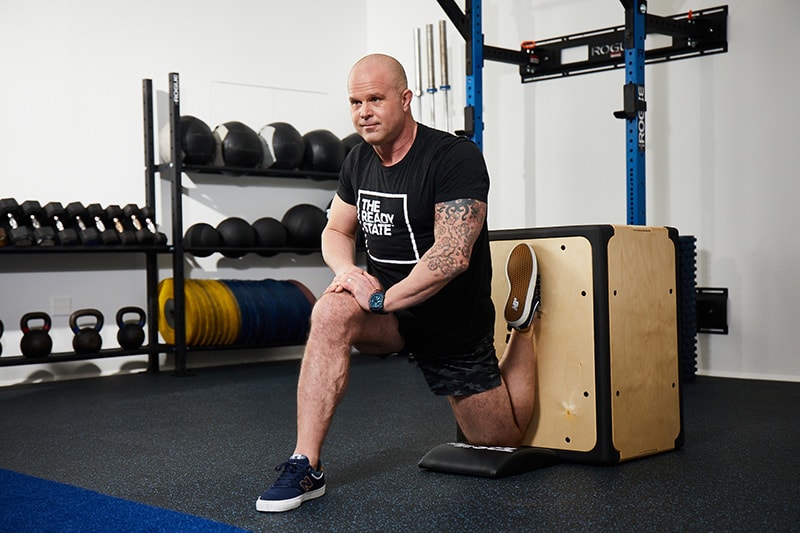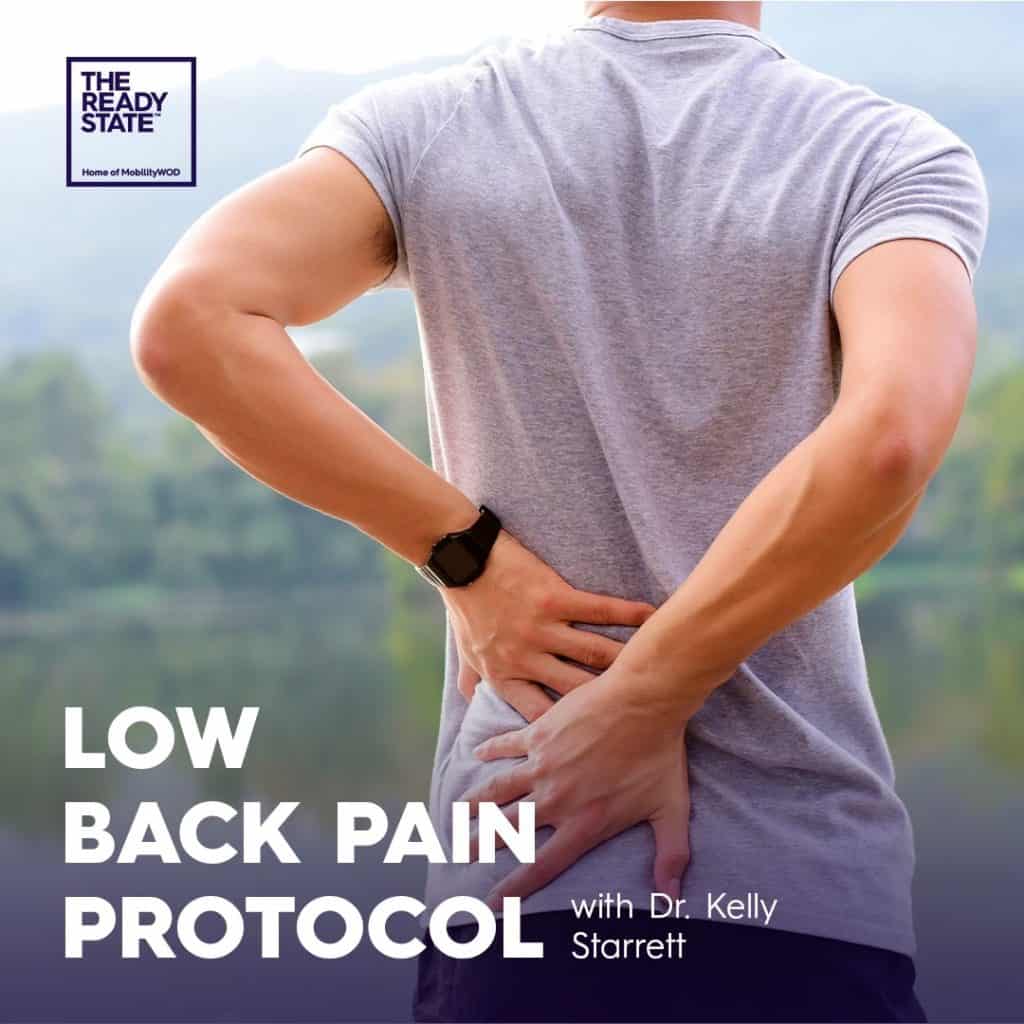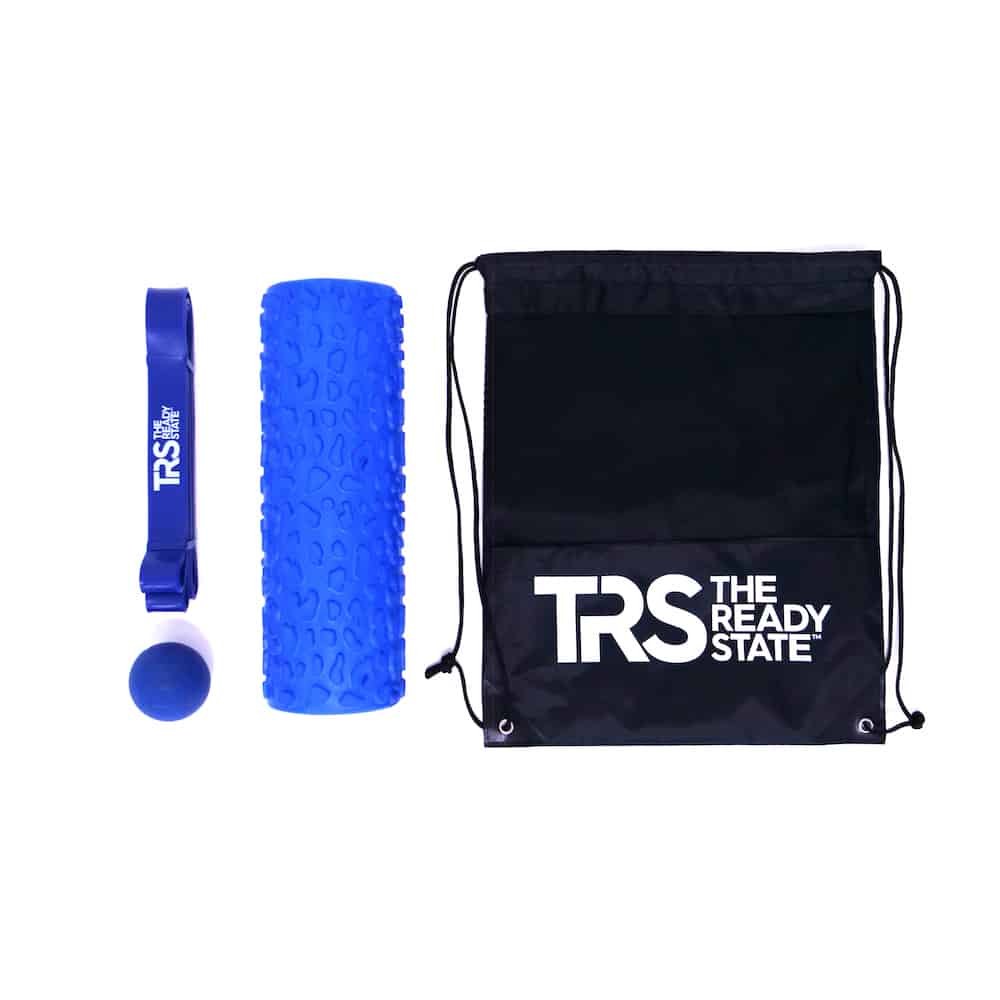The Most Important Mineral For Performance: Magnesium
In 2017, I came down with panic attacks, heart palpitations, anxiety, and fatigue. It would be nearly 2 years before I could exercise regularly again, and at different points during this experience, I was unable to work a job or even leave my house.
During the first few months, the worst symptoms were mental, though there was plenty in the way of heart palpitations and physical fatigue.
Fortunately, I did not sit by idly and watch this process occur. Before any of this began, I was pursuing the Crossfit games and already knew a lot about health and fitness. I dove in deeper, listening to tons of podcasts and audiobooks, as well as reading as much functional health material I could find.
For months I found small victories and slowed my decline, but I still reached a point where I was afraid to leave my house.
Then I tried magnesium. Up until that point, I’d mainly tried using herbs or non-essential amino acids like L-theanine to reduce my symptoms. Still, I kept seeing magnesium on sites like examine.com or bengreenfieldfitness.com.
I read that this essential mineral is deficient in the majority of the population, especially in hard-charging performers or athletes, and that being low in this mineral might be why I was suffering from anxiety. I did a little research and ordered a topical magnesium lotion on amazon.
In the meantime back home, I hit a new low. Sitting in my car at a gas station, I turned around and went home instead of going inside. I had strong anxiety and felt like going in would have triggered a panic attack. This was less than a mile from my house.
The magnesium lotion arrived in the mail the next day. And it worked.
I went from being unable to get out of my car to walk into a quick trip to being able to help lead a 5-day backpacking trip along the Appalachian Trail.
Magnesium didn’t cure me. I ended up needing to do a lot more than fix a mineral imbalance to get out of the hole I’d dug. Even so, for many people, magnesium is all it takes. Correcting deficiency can solve problems as little as muscle cramps and as big as psychosis.
As a reader of The Ready State blog, I wouldn’t be surprised if you are trying to heal from a health condition but my guess would be that you are an athlete or another kind of top performer looking for an edge on life.
Not to worry, magnesium is just as important for you, if not more so.
I needed more to get out of adrenal fatigue and HPA Axis Disregulation than just magnesium, but I might have never ended up there in the first place if I’d already known about this miraculous mineral.
Over the course of this guide, I’m going to show you just how important magnesium is, as well as detail the best ways to use it for an optimized life.
Magnesium’s Role in Biology: Why Is It So Important?
Magnesium is an electrolyte, and it works synergistically with other electrolytes to make bodily functions happen.
How extensive is this process? Well, magnesium is involved in over 300 enzymatic processes in the body, including functions in every major organ and especially the heart and brain.
When you develop a magnesium deficiency, even if it is not that severe, you can start feeling nearly any symptom imaginable.
In athletes, common symptoms of low magnesium are cramps and slow recovery but it can get much worse.
Sudden cardiac death in athletes is linked to long term deficiency of magnesium. When you hear about that triathlete or football player experiencing heart failure mid-race or game, low magnesium is a common culprit.
Outside of athletics, low magnesium is a very common reason for feelings of anxiety, panic, or depression. In her book, The Magnesium Miracle, Dr. Carolyn Dean details a scenario where a diuretic patient developed paranoia and psychosis. When placed on a magnesium IV, she recovered completely within 24 hours.
I could continue listing specifics but here’s the gist: Magnesium is necessary at the foundational biological level, and low magnesium can contribute to or cause tons of different health problems. The big question, what causes magnesium deficiency in the first place?
Understanding The Causes of Deficiency: Why Do We Need It?
Magnesium deficiency actually isn’t supposed to happen easily. Food is supposed to be abundant in the mineral, so much so that our body has natural mechanisms for getting rid of excess magnesium.
This makes magnesium supplementation much safer than other electrolytes like calcium. If you take too much magnesium, your body will literally dump it. This is why some forms of magnesium are used as laxatives.
Other electrolytes, like calcium, are rarer in our diet, so our bodies cling to them more tightly. You can damage yourself if you consume too much calcium because it will not be simply expulsed. Instead, it can begin to calcify your arteries and create other issues. We’re getting ahead of ourselves though.
The reason that magnesium deficiency is so common in the modern era is complex and multi-faceted.
For one thing, magnesium in plant foods is far more scarce than it once was. Mono-cropping and certain fertilizers and pesticides have resulted in low magnesium plants.
Potassium based fertilizers fill the soil we use with potassium nitrate, where normally there would be magnesium and other nutrients. This potassium nitrate replaces the magnesium normally found in the chlorophyll of green plants.
This means there is less dietary magnesium in our food supply, both when we eat plants that are low magnesium but also when we consume animals who are eating low magnesium plant material. This is a major reason to stick to organic food, and grass-fed grass-finished animal food if you can.
Unfortunately, even on a great diet, you may not be getting enough magnesium.
Stressors such as heavy metals, glyphosate, mold toxicity, pollutants, caffeine and stimulants, exercise, and general stress cause us to use up magnesium faster.
Then on top of this, calcium is highly promoted and many foods are fortified with the mineral. Why is this a factor in magnesium deficiency? Calcium tends to work synergistically with magnesium for many bodily functions.
You want a ratio of 1:1 or 1:2 magnesium to calcium. However, remember what I said earlier about how our body holds onto calcium?
Unlike magnesium, calcium is not common in out dietary environment and our biology uses Vitamin D to store as much of the calcium as it can.
The problem is that now we have too much calcium. Think of all the milk adds: “Get Your Calcium!” and whatnot.
Milk and many other processed foods are fortified with extra calcium but our diets have not been similarly fortified with magnesium.
In the realm of athletics, calcium and salt pills are common tools to stave off cramping. Unfortunately, without also taking magnesium you may be making the problem worse.
The last major component of magnesium deficiency is poor testing practices in modern medicine. On a physical or if testing electrolytes, most doctors will administer a serum magnesium test.
Unfortunately, blood levels of magnesium are extremely stable even in the face of deficiency. Magnesium is so important for cardiac function that the body will pull magnesium from the bones and tissues (where 90% of the mineral is stored) for a long time before it allows serum magnesium to decline.
It is common to believe that magnesium deficiency is rare, because serum levels are rarely low. Many doctors don’t even administer magnesium tests.
How common is magnesium deficiency? Well, the food and drug administration estimates that 70% of Americans do not achieve the recommended daily values for magnesium of 420mg.
On top of this, many functional medicine practitioners suggest consuming more than this, from 500mg to 600mg as a maintenance level up to 1000mg or more if correcting deficiency or engaging in something that uses magnesium up such as exercise, stress, travel, illness, or certain diets.
Magnesium Testing
Standard serum magnesium testing is an inaccurate way to measure magnesium levels, but there are more accurate tests.
Generally, a magnesium RBC test is useful for diagnosing a deficiency. Unlike the magnesium serum test, which measures magnesium floating freely in the blood, RBC tests look inside the red blood cell and measure the magnesium there.
Getting a test is simple, and cheap. You can often get a magnesium RBC test through your doctor but if not, RBC magnesium tests range from $30 to $60 to order yourself on a site like requestatest.com.
Magnesium RBC Numbers
Ideal lab ranges vary based on where you get the test, however Dr. Carolyn Dean of The Magnesium Miracle believes you should always aim for the top of the range. When 70% of the population is not meeting the RDAs for magnesium consumption, lab values that are considered “normal” are likely suboptimal.
Many labs say that a good magnesium RBC number is between 4 and 6.8mg/dL. Dr. Dean suggests aiming for 6.0mg/dL to 6.8mg/dL. This is my aim as well.
Low Magnesium Symptoms
Personally, I don’t think it’s necessary to get testing to start taking magnesium. I certainly didn’t.
Eventually, I believe you should get a magnesium RBC test and then re-test within a month, while supplementing, to see if you are raising your levels.
However, magnesium deficiency is so common, and the mineral is so safe, that I think most people are fine to just start supplementing. If you want to identify a magnesium deficiency without blood tests, observe whether you have any of the following symptoms or are participating in one of the following categories:
- Exercise often
- Sweat often (sauna use, hot tub, etc.)
- Muscle fatigue, cramps, or weakness
- Heart palpitations, rapid heart beat, or arrythmia
- Anxiety, depression, mood swings or mood problems
- Brain fog or difficulty focusing
- Joint pain
- General Fatigue
- Are under a lot of life stress
- Use diuretics
If you have any of these symptoms or other unmentioned concerns, it may be related to low magnesium. My suggestion is to start supplementing and see if the way you feel improves. If you do, then I’d say you’ve got a pretty good idea that you were low.
However, not all magnesium supplements are the same. The most common supplements use magnesium oxide, which absorbs poorly, whereas others like magnesium glycinate or malate are very bioavailable.
Types of Magnesium
Magnesium Citrate & The Laxative Effect
There are many different types of magnesium supplements you can take, but only a few that I like. Some people react differently to different types. Magnesium citrate, for example, is one of the most common forms of oral magnesium and is the type found in the famous supplement Calm Magnesium Powder.
I, however, do not feel much benefit from Calm magnesium and it often gives me a laxative effect.
I mentioned earlier that the laxative effect is how your body gets rid of excess magnesium when you take too much for it to use. You don’t need to worry as much about overdoing your magnesium intake because of it.
However, it is still best avoided. When you experience it, you are dumping excess magnesium but also fluid in general and I believe we are depleting our electrolytes as a whole when we are having it.
You also still may need more magnesium even if you are having the laxative effect. Thomas DeLauer, an expert on the ketogenic diet and someone well versed in using magnesium, believes that magnesium citrate is actualyl too bioavailable.
The magnesium is over-absorbed into the cells immediately upon entering the body and initiates the laxative effect long before you start to correct your deficiency.
My first experience with magnesium was a magnesium lotion, but after that I switched to magnesium citrate for months. I did not notice long term improvement from using it, and began to have health issues again.
I started to believe that maybe, somehow, I was over-supplementing and maxed out on magnesium. When I got a magnesium RBC test about a month later, I was still deficient. At this point I switched to a different kind of magnesium, no longer experienced the laxative effect, and continued feeling improvement.
Magnesium Malate & Magnesium Glycinate
By far my favorite two forms of magnesium are magnesium malate and magnesium glycinate. Both of these are forms of magnesium chelate, which means that the molecule is magnesium that is attached to an amino acid.
Magnesium glycinate has a calming effect, being that it is attached to the amino acid glycine, which promotes liver function and mood stability.
Regarding magnesium malate, this is a favorite of athletes. It is a malic acid chelate, and malic acid lowers inflammation and promotes exercise performance.
I also am more concerned with mood, generally, than performance. My favorite magnesium oral supplement is MagnesiumSRT by Jigsaw Health. This form of magnesium malate is made to slowly release into your body over the course of the day. It is also offered with a Vitamin B complex or without it.
Regarding glycinate, pure encapsulations makes a great magnesium glycinate product. I suggest glycinate either to cycle with magnesium malate. I don’t think cycling helps with improving magnesium deficiency, but glycine is a great amino acid for mood so I like to switch between the two types.
Magnesium Chloride & Topical Magnesium
Topical magnesium products are not consumed orally but are applied to the skin. Some find that topical magnesium works better for correcting deficiency than a supplement.
Topical magnesium can also be used to directly address muscle pain, cramps, and injuries.
Though there is not evidence of a mechanism, I and many others find that applying a magnesium chloride oil, lotion, or use of an epsom salt bath is better for addressing aches and pains than taking a supplement.
Most topical magnesium products are either magnesium chloride, or magnesium sulfide, both of which are salts.
For use on specific injuries, cramps, and pains I recommend magnesium chloride oil or lotion, and for general use I like magnesium bath flakes for unwinding at night.
I use the brand Ancient Minerals for quality reasons, but if you’re looking for a good brand just search them on google and look for their background. Salts may have heavy metals depending on their original source. I believe it is important to always vet your supplement companies.
For the athletes and other Ready State users out there, topical magnesium is a phenomenal addition to an evening ritual or a mobility routine. I often apply magnesium oil to areas I am about to address with foam rolling or other mobility routines.
Separately, if you’ve read Kelly’s article on evening rituals, you already know that mobility at night is a great way to unwind and turn off the sympathetic nervous system (fight or flight.)
Throwing in a hot magnesium salt bath after can amplify these effects and is great for sleep as well.
Magnesium Threonate
The last form of magnesium I’ll mention is magnesium threonate. Magnesium threonate is used for its nootropic properties. Nootropics are supplements or pharmaceutical compounds used to enhance brain function.
Magnesium threonate has been found in research to greatly benefit memory function, both in learning new material and retaining old memories. Furthermore many find it helps with sleep.
I find that it is easier to reach the laxative effect from magnesium threonate than from magnesium malate, topical magnesium or magnesium glycinate.
I like to use threonate specifically for mental function, such as when I’m writing or researching. For maintaining magnesium levels or correcting a deficiency though I stick to the other forms.
For magnesium threonate I use The Jarrow Formulas brand.
Conclusion
Magnesium is one of the most important minerals you could possibly take in supplement form.
It is involved in over 300 enzymatic processes in the body, and low magnesium can cause health problems ranging from heart attack to psychosis.
Low magnesium is also incredibly common, due to lack of the mineral in modern soil and agriculture, as well as magnesium wasting stressors such as health problems and general life stress, but also sweating and exercise.
When it comes to testing, you’ll want to use a magnesium RBC test rather than a serum blood test. This is because serum magnesium can be normal even when you have a deficiency.
With that said, magnesium is a very safe supplement to use. If trying a magnesium supplement lessens any symptom from muscle pain, to anxiety, to mood and energy.
When it comes to what kind of magnesium to use, I prefer glycinate or malate. Both are highly bioavailable and have other benefits.
I also make great use of topical magnesium, such as epsom salt baths or magnesium chloride oil. These combine very well with mobility work as part of an evening routine.
Magnesium oil in particular can be used to address specific areas of muscle soreness or cramping.
For a brief step-by-step list on how to use magnesium, well, here we go:
- start supplementing 400 to 600mg of magnesium malate or magnesium glycinate daily.
- If you feel better, continue supplementing with these amounts and get a magnesium RBC test when you can.
- Test again 1 month, or as soon as 1 week if you can and see if your levels raise. Your aim is 6.0mg/dL to 6.8mg/dL for your RBC test result.
- If you are significantly lower than 6.0mg/dL (5.0 or lower) use up to 1000mg of magnesium supplementation daily until you reach desired levels, then go back down to the 400 to 600mg range.
- Magnesium supplementation is generally safe due to the body’s ability to get rid of unneeded magnesium via the laxative effect. However, if you start feeling negative effects, test one more time. If you are above 7.0mg/dL, taper off the magnesium. If you are still low, your symptoms may be from still being deficient. Some people are “magnesium wasters” who go through the mineral very rapidly. They may need 1000mg a day as a maintenance dose.
Regardless of who you are or what your journey is, it’s my guess that magnesium can help.
Whether it’s just some topical magnesium for aches and pains, magnesium threonate for mental function, or regular supplementation to address a deficiency, this is one of the most powerful supplements there is.
With this information, I hope you can use magnesium to go forth and further support your Ready State.



















TRS Virtual Mobility Coach
Guided mobilization videos customized for your body and lifestyle.
FREE 7-Day Trial